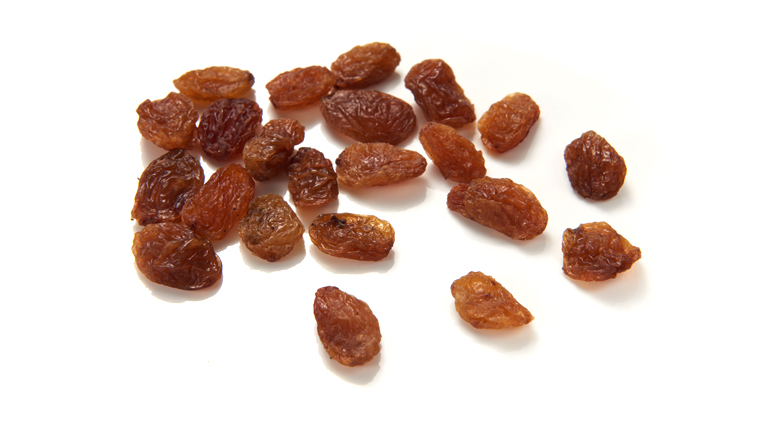
Raisin
ORIGIN: non-UE
Vitis Vinifera Sativa – better known as raisins – is a variety whose provenance got lost in the mists of time. Almost certainly originating from South-Western Asia and then subsequently introduced in the Mediterranean basin, today it is known and appreciated in the dried version obtained by subjecting fresh grapes to a natural dehydration process.
The benefits of integrating raisin in the daily diet are many; one of the most important and least known is the high concentration of phenol substances that have an intense anti-oxidant action and positively stimulate the glucose metabolism. Also excellent, as a quick source of sugars, raisin also boasts laxative properties thanks to the abundance of fibres.
Sweet flavour and easy to chew thanks to its thin skin, the sultanas are much loved by children, people who like sweets and those who prefer sweet and sour dishes. Often found in great classics such as strudel, castagnaccio, panettone and many other pastry delicacies, raisins are also widely used in creams, jams and liqueurs as in the case of table wines or grappa. Furthermore, this fruit also finds a place in savoury preparations, especially in the Neapolitan and Sicilian cuisine, where often associated with cod or pine nuts. Finally, it can be consumed, alone or in combination, with other dry and dried fruit, as a tasty and healthy snack.

